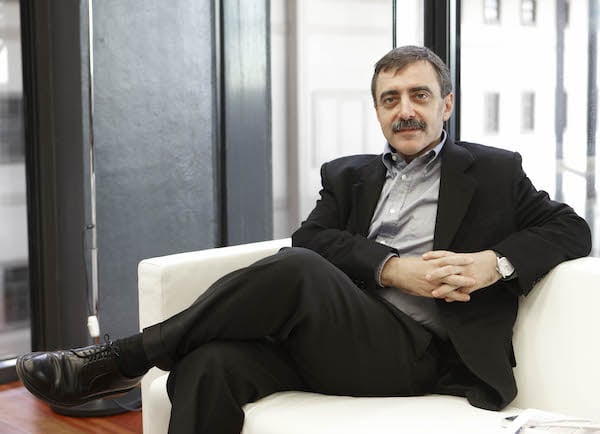
Photo via: Artfacts
The Spanish Association of Christian Lawyers (Asociación Española de Abogados Cristianos) has asked the Spanish Ministry of Culture to dismiss the director of Museo Reina Sofía, Manuel Borja-Villel, for programming an exhibition which, in their view, has “an obvious anti-Catholic bias and might entail several crimes against freedom of religion,” Aleteia reports.
The exhibition, entitled “Un saber más útil” (Really Useful Knowledge) and curated by the collective WHW (What, How and for Whom), opened last Wednesday at the Madrid museum. According to the press release, the exhibition “endeavors to position the notion of critical pedagogy as a crucial element in collective struggles, and explores the tension between individual and social emancipation through education with examples that are both historical and current.”
The Christian association has been irked by the installation Cajita de fósforos (Little Matchbox, 2005) by the Argentinian art collective Mujeres Públicas (Public Women). The work features a matchbox with the sentence “the only Church that illuminates is the one that burns,” attributed to the Russian thinker Piotr Kropotkin. It subsequently became the motto of Spanish anarchist Buenaventura Durruti, who was killed at the start of the Spanish Civil War.
Another contentious sentence included in a second piece by the same collective, also part of the exhibition, is “If the Pope was a woman, abortion would be law,” which no doubt particularly upset the Christian association. Much to their chagrin, last September, the Spanish government had to abandon its plans to introduce a new, much tougher abortion law, a move that triggered a huge number of demonstrations all over the country.
Detail of the piece Cajita de Cerillas (Little Matchbox)(2005) by the collective Mujeres Públicas
Photo via: El Confidencial
The Christian association has launched two online petitions to protest against the Reina Sofia’s “attack to the freedom of religion.” The petition asking for the resignation of the director had reached 5,717 signatures at the time of writing. The second petition—protesting against the use of public money to fund an exhibition that “insults Christians” (Museo Reina Sofía is a public museum) and requesting the removal of Cajita de fósforos from the show—had gathered 29,874 signatures this morning.
The response of Museo Reina Sofia didn’t take long to arrive. On Thursday evening, a day after the exhibition’s opening and the launch of both online petitions, the museum’s press office released a press statement, declaring: “The Museo Reina Sofía respects the freedom of expression and the freedom of artistic creation, just as it respects all beliefs and the freedom of opinion of the people whose sensitivities have been hurt.”
Referring to the controversial artwork Cajita de fósforos, the statement argues that the work “addresses a specific historical context, and therefore can only be discussed metaphorically in the present,” and that the museum has never “censored nor will censor the work of any artist, as it would entail an attack against freedom of expression.”
The museum’s response was joined by another online petition, launched last Saturday by the CIMAM (International Committee for Museums and Collections of Modern Art). The petition supports Manuel Borja-Villel, director of Museo Reina Sofía, and his team in “their opposition to the attempted censorship of a work of art presented within the exhibition ‘Really Useful Knowledge’.” At the time of writing, the petition had gathered 1,400 supporters.
“Really Useful Knowledge” is on view until February 9, 2015, at Museo Reina Sofía, Madrid.